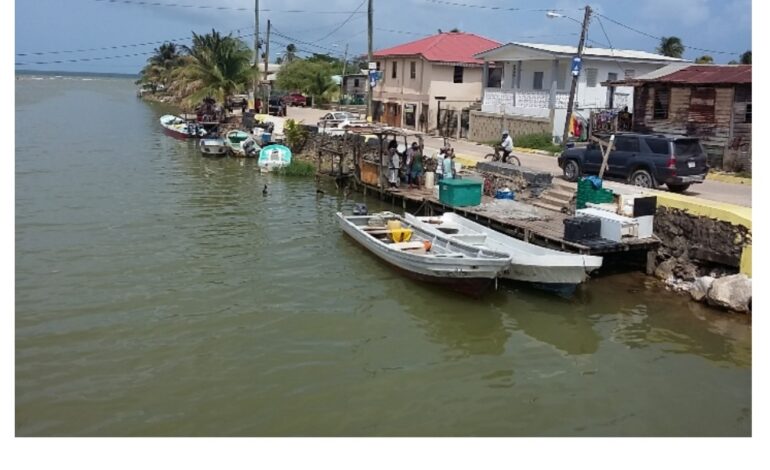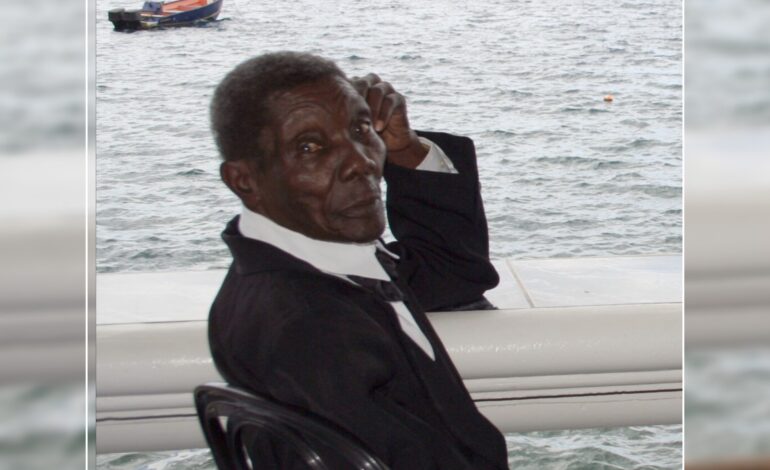
The Ministry of Economic Development and Investment, The Ministry of Blue Economy and Civil Aviation, The Belize Fisheries Department, The Coastal Zone Management Authority & Institute and The National Meteorological Service of Belize with assistance from The Food and Agriculture Organization of the United Nations (FAO) are officially launching a project entitled, “Enhancing adaptation planning and increasing climate resilience in the coastal zone and fisheries sector of Belize”. This is possible with financing from the Green Climate Fund (GCF) which supports the efforts of developing countries to respond to the challenges of climate change.
Like many other low-lying coastal nations, Belize is vulnerable to the effects of climate change. Its geographical location leaves the country exposed to the risk of rising sea levels and increasing frequency and intensity of tropical storms. Its economic dependence on natural resources heightens its vulnerability to rising temperatures and the resulting impacts on agricultural productivity, fisheries ecosystems, and other economic sectors.
The coastal zone is one of Belize’s greatest assets and its magnificent Barrier Reef Reserve System is a renowned World Heritage Site. It is also severely threatened by climate change. According to the UNDP Country Profiles studies, an increase in air temperature ranging from 2ºC – 4ºC is projected by 2100 for Belize, as well as an annual rainfall decrease of about 10% for the same period. Other expected impacts include increased erosion and contamination of coastal areas, sea level rise, flooding and an increase in the intensity and occurrence of natural hazards, such as hurricanes. Thus, it is imperative now more than ever to ensure that the coastal zone is utilized in a manner that will continue to support important ecological functions, as well as social, cultural and economic prosperity for current and future.
The fishing industry is a major part of the Belizean society, supporting over 2,500 registered fishers and their families, and provides a source of protein for local consumption and exportation to foreign markets. In 2010 the fishing industry generated $21.6 million USD, with the exportation of the three main marine products lobster, conch and finfish. Rising sea level will adversely impact on fish habitat including wetlands, coral reefs and sea grasses where fish spawn, breed, feed and or grow to maturity. The rising near-surface water temperature and increasing acidification may cause massive bleaching and dieback of corals and may impact main commercial species such as the Spiny Lobster and Queen.
Therefore, the goal of the project is to increase the resilience of the coastal zone and fisheries sectors of Belize to climate change impacts, including the improvement of the data and information systems related to climate change, development a comprehensive adaptation plan for the sectors, prioritize adaptation options and develop a concept note for the GCF on one of the prioritized project ideas for the fisheries and coastal zone sectors.
The three main specific outcomes include adaptation planning governance and institutional coordination strengthened, evidence basis provided to design adaptation solutions for maximum impacts in Belize and adaptation finance increased.
The outputs take into consideration gender aspects and seek to include Non-Governmental Organizations, Civil Society Organizations, the private sector and at least two indigenous groups from Belize to ensure a robust adaptation planning process for the fisheries and coastal zone sectors. Inputs from all relevant groups will ensure stakeholder buy-in and sustainability of the project deliverables. The activities will include 2 forums, 10 training/workshops and 19 consultations with an overall participation and training of 401 persons. The project will target equal participation of women in all events to ensure gender inclusion and equal consideration of interests of both men and women. The duration of the project is 18 months and the total grant finance by the Green Climate Fund is $600,000 USD.
The Chief Executive Officer for the Coastal Zone Management Authority and Institute, Chantalle Samuels mentioned that “This readiness project is very timely for Belize’s coastal zone and fisheries sector. The interventions under the project will undoubtedly build on ongoing national efforts and set the stage to further strengthen institutional governance, and enhance the resilience and adaptive capacity of our coastal ecosystems and communities to better respond to the impacts of climate change”.
Meanwhile, Crispim Moreira, the FAO Representative in Jamaica, The Bahamas and Belize, stated: “FAO understands the benefit to the Belizean Coastal and Fisheries sector and the impact value it will have on the lives of Belizean people. We therefore welcome this project and continue to extend our support because it is imperative to develop and sustain a coastal zone and sector that can withstand the inevitable effects of climate change”.
Over the past 15 years, FAO has consistently provided assistance to Belize in several areas including policy advice, advocacy and capacity building as well as emergency assistance and resource mobilization for the food and agriculture sector. More recently, resilience building and expansion of market access have become important features of cooperation. FAO’s support continues to be instrumental today, particularly in view of the country’s commitment to achieving food security and rural development.







